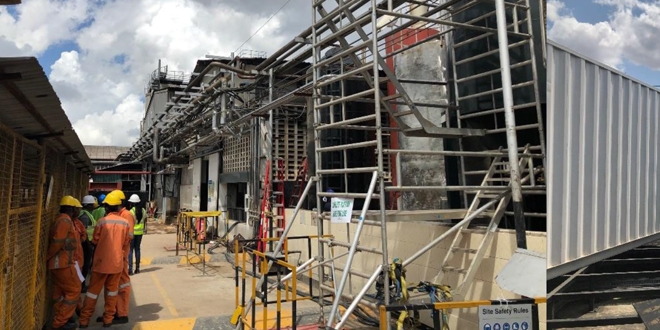
Our Projects are
Transforming African Trade
Quick Contacts
2nd Floor, Fidelity Insurance Centre Waiyaki Way, Westlands

Speaking at an EAC high level EA business and investment summit held in Arusha this week, Serengeti Breweries Limited’s Managing Director, Mark Ocitti whose company is currently investing 14 million pounds (over 40bn/-) in expansion of its three brewing plants in the country, said the bloc’s tax regimes are not business friendly.
Giving his views at a plenary session entitled, ‘Tax regime harmonization-fears, benefits and practical way forward’, Ocitti said, “The list of stays of implementation continue to grow due to concerns in terms of economic asymmetry between EAC member states in terms of revenue considerations, support for infant industries; affordability, high quality and sufficient availability of inputs, focus on growing competitive upstream industries and supply of high quality products at affordable prices for consumers.”
Ocitti called for speedy tax harmonization among the EAC members saying that though some significant ground has been covered, the prevailing barriers to trade needed to be quickly managed in order to have a steady flow of investment and free movement of goods and services.
“Vehicles such as duty remission schemes continue to play a crucial role in supporting manufacturing in EAC,” Ocitti argued while noting that different interpretation of the EAC Treaty’s article terms such as ‘import’ by the members has led to the higher domestic taxes charged on goods originating the bloc, a protectionist move that has lowered intra-EAC trade.
Explaining on the impact of the current state on the brewing industry, the SBL chief executive noted that differences in the domestic taxation regime has led to increase in contraband alcoholic product, adding that there remains a challenge in implementation formula for harmonisation of domestic tax regime because EAC countries are at different levels of economic development and there is no EAC Legal framework to drive commitment for change.
On the fast-tracking of the harmonization process, he said, “The slow review process of EAC Customs Union protocol instruments such as EAC CET is affecting the development of certain value chains and overreliance on the bloc’s pre-budget process for import duty review of certain products.”
He however noted that since last year, there has been a good traction by EAC partner states who agreed on a four-band structure of zero rate, 10, 25 and 35 percent as CET benchmarks.
Elaborating on how East African Breweries Limited, which SBL is its subsidiary, is affected by the current state of affairs, Ocitti pointed out that courtesy of its unique position of having subsidiaries in Kenya, Tanzania and Uganda (Uganda Breweries Limited-UBL) – the regional beer-maker’s risk associated with lack of harmonization are minimised because a lot of its products are produced at the local level.
“However,” Ocitti added, “harmonisation of standards for RTD (Ready To Drink) products has led to challenges in trade of RTD from Kenya to Tanzania (lower limit of CO2 levels in the Tanzanian RTD Standards is the upper limit in Kenyan Standards).”
He also explained that premium spirits are also badly affected by the current status because lack of trust that is related to party transactions meet rules in the fourth schedule of the East African Community Customs Management Act (EACCMA) has affected premium spirits importation into Kenya and Uganda.
“Harmonization among the rest of EAC partner states will therefore, create a level playing field in the valuation of imported premium spirits products,” he added while noting that EABL is still subjected to unnecessary penalties in Kenya Bureau of Standards for applying health warning labels in Kenya for imported spirits.
Source: IPP Media
Disclaimer: The views and opinions expressed in this article are those of the authors and do not necessarily reflect the official policy or position of TradeMark Africa.